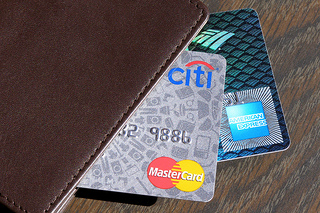Last updated Nov. 30, 2018.
You probably already know that bankruptcy shows up on your credit report, and has the potential to bring your score down. Many people lose 200-300 points from their credit score after filing for bankruptcy. Others don’t see a big decline, because negative credit events have already done significant damage to their score.
The fact that you filed for bankruptcy will be listed on your credit report for 10 years. You probably also already know that your credit score is a measure of how creditworthy you are. It’s a crucial part of how potential creditors evaluate the risk that you won’t pay back your debts. It’s how they decide whether to extend credit to you at all, how much they’re willing to lend, and what they’ll charge you for it.
In light of those facts, is it possible to get new credit after bankruptcy? Or will you have to wait the full 10 years until the bankruptcy drops off your credit report? Keep reading to learn more.
Contents
If I file for bankruptcy, can I get a credit card?
If your credit score is damaged, you won’t be able to get a credit card at all, right? If you’ve filed for bankruptcy, you may be surprised to receive offers for new credit cards in the mail. As it turns out, you may actually be more attractive to creditors after you emerge from bankruptcy than before you filed.
That’s because after receiving the bankruptcy discharge, you have a clean financial slate with no high-interest debt hanging over your head. Credit card companies know that with your unsecured debt discharged, you don’t have any other payments to make. That means you might now be able to handle credit card payments.
Plus, if you filed for bankruptcy under Chapter 7, you won’t be able to file under Chapter 7 again for eight years. That gives creditors an extra layer of protection – you won’t be able to discharge your debts to them for at least eight years.
Should I get a credit card after bankruptcy?
That said, keep in mind that you’ve struggled with debt in the past. Think carefully before you start taking on more.
Examine any credit offerings carefully. With your lowered credit score, credit companies may charge you sky-high interest rates, annual fees, and may even require you to make down payments on the card. If you don’t pay your balance in full each month, you may soon be racking up unmanageable amounts of debt again.
As always, a credit card can be an expensive way to borrow if your credit score is low.
How can I rebuild my credit after bankruptcy?
First, start saving. If you’re working, set aside a certain amount each month to put into a savings account. If you’re not working, find employment and do the same. Don’t take on any more debt – avoid payday loans in particular and don’t make any large purchases. Tighten your belt and live within your means. You may find you don’t need to borrow at all to get by.
Once you start to develop general healthy financial habits, you can start to rebuild your credit score. Reach out to the credit reporting agencies. Get a copy of your report (you’re legally entitled to one free report every year) and check it for inaccuracies. You’re already taking a hit from bankruptcy, so you don’t want to lose points from silly errors elsewhere in your report.
Write letters to each credit rating agency explaining the financial hardship that led you to file for bankruptcy. They’ll be much more understanding about a terminal illness than a spontaneous luxury shopping spree and may be able to help with your credit score.
After you’ve set this groundwork, the best way to improve your credit score is to prove that you’re creditworthy. When your score is low, the credit company may only approve you for a card with annual fees, but the fees will decrease as your score improves and you qualify for different cards.
Each month, make a couple of small purchases with the card. And each month, pay your balance in full. By regularly using and paying off your credit card, you’ll quickly build up your credit score. You’ll also build a habit of paying your full balance, which will help you avoid credit card debt in the future.
Extra credit after bankruptcy
Bankruptcy is a fresh start, not a tragic ending. You may find that you still have access to credit after bankruptcy. You’ll also have the skills you need to manage it – you must take credit counseling and financial education courses to complete the bankruptcy process. When your bankruptcy is over and you’re debt-free, you can put those skills to use rebuilding your credit score.
Image from Flickr user StockMonkeys.com
About Russ Cope
Russ B. Cope is dedicated to legal standards that go far beyond filing cases — he is interested in your goals. Russ wants to be certain that each client is making an informed decision that will make their life better, and thrives on the interaction between lawyer and client.


Leave a Reply